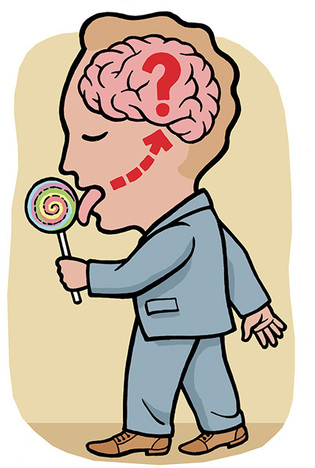 loading
loading
FindingsBeware of artificial sweetenersThey confuse your metabolism.  Gregory NemecView full imageThe processed foods that fill supermarket shelves are full of carefully engineered nutrients and flavors—often including artificial sweeteners, which deliver the deliciousness of sugar without its calories. But in recent years, evidence has cropped up that people who regularly drink artificially sweetened beverages are gaining more weight, and have more risk for diabetes and cardiovascular problems, than those who don’t. Why? New work at Yale may have found one of the reasons. A team of researchers led by Dana Small, professor of psychiatry and associate professor of psychology at the School of Medicine, ran several studies designed to tease out how the brain and body respond to sweet taste versus caloric load. Participants downed drinks with varying levels of artificial sweetener and varying levels of calories. In some drinks, the level of sweetness was just right for the caloric content; in others, it was too high or too low. The participants’ brains were scanned with MRI to find out how strongly their reward centers responded to the drinks—a measure of the satisfaction and pleasure we receive from sweet foods. Their resting energy use was tracked to find out how much energy their bodies used to metabolize calories from the drinks. (The study appeared in Current Biology.) The researchers hypothesized that caloric content determines how hard the body works to metabolize the calories. They found something else. Only when the taste and the calories matched—when the sweetness corresponded to the caloric load—did participants’ bodies work at the appropriate level. The mismatched drinks tricked their brains into an inappropriate metabolic response. “When the sweet taste is not at the right level for the amount of calories present, that metabolism is disrupted, because that system evolved in the world where sweetness is tightly correlated to caloric load,” says Small. And if the calories are not metabolized, they are likely being stored in the body. “I’m not the first to say it—just eat what is natural,” she adds.
The comment period has expired.
|
|